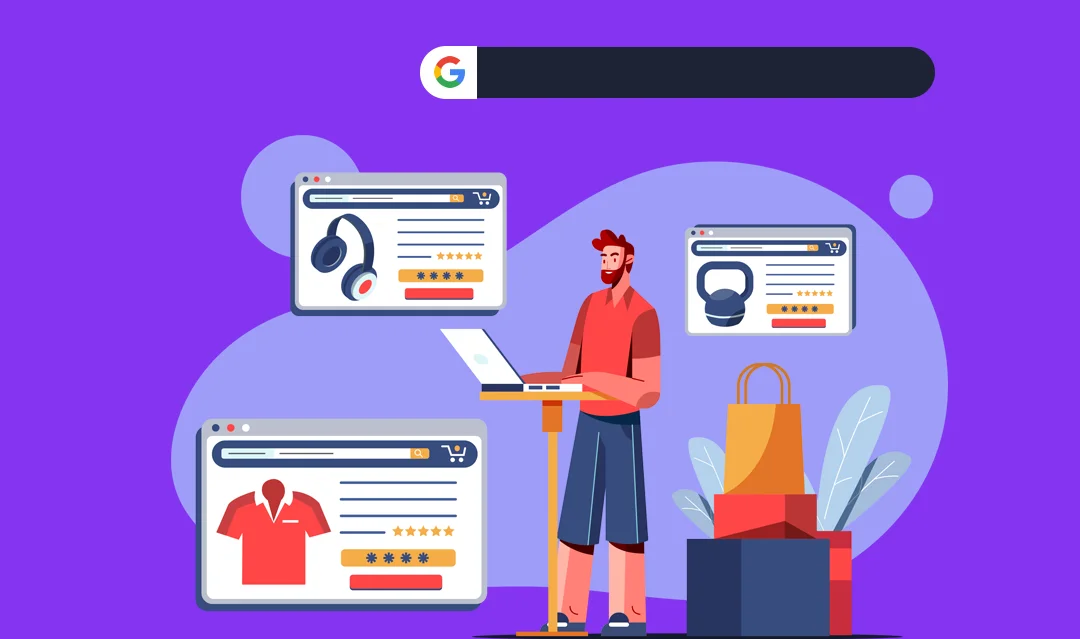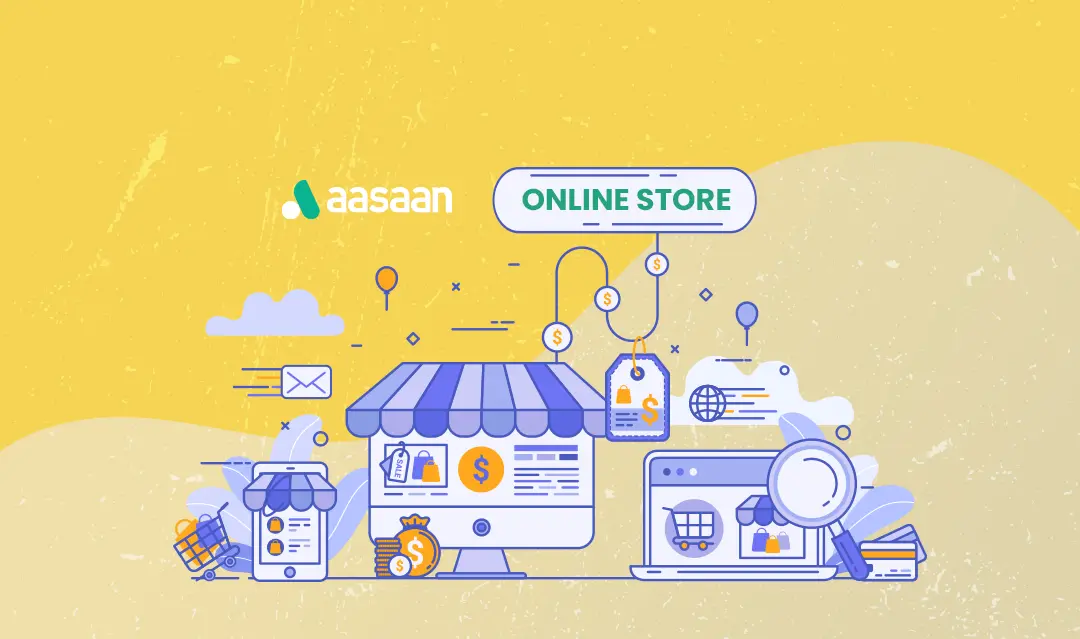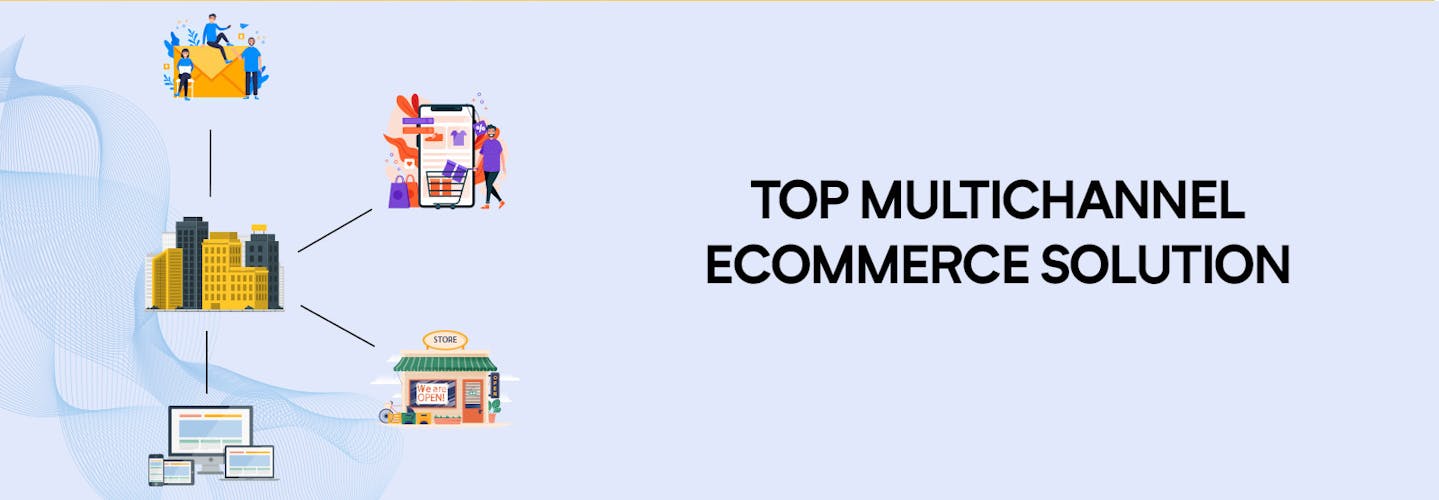
Top Multi-Channel Ecommerce Solution in 2025
In today’s digital age, a business that only sells through a single channel is likely missing out on a huge potential customer base. That’s where a multichannel ecommerce solution comes into play.
This powerful software can help businesses expand their reach and increase sales by enabling them to sell their products across multiple channels simultaneously.
At its core, a multichannel ecommerce solution is a comprehensive platform that connects multiple sales channels, including online marketplaces, social media platforms, and brick-and-mortar stores.
This software enables businesses to create a seamless customer experience across all channels, ensuring that customers can shop and buy products from their preferred platform with ease.
But the benefits of a multichannel ecommerce software don’t stop there. By using this solution, businesses can also gain valuable insights into their customers’ behavior, preferences, and buying patterns.
This information can be used to create more targeted marketing campaigns and to optimize product listings and pricing strategies.
For businesses looking to increase their sales and expand their reach, a multichannel ecommerce solution is an essential tool.
By using this powerful software, businesses can connect with customers wherever they are, create a seamless customer experience, and gain valuable insights to help grow their business.
So if you’re ready to take your business to the next level, it’s time to consider implementing a multichannel ecommerce solution today.
What is Multichannel ecommerce solution?
Multichannel ecommerce solutions refer to the integration of various sales channels and platforms to provide a seamless shopping experience for customers.
The significance of multichannel ecommerce for businesses is evident in the vast array of opportunities it presents, allowing organizations to expand their reach and remain competitive in an ever-changing digital landscape.
Benefits of Multichannel Ecommerce platforms
1. Increased reach and visibility:
By utilizing multiple channels, businesses can cater to a wider audience, ensuring optimal brand exposure and increased customer acquisition.
2. Enhanced customer experience:
Offering multiple touchpoints for shopping enables customers to choose their preferred method of engagement, fostering a positive and seamless customer experience.
3. Higher customer engagement and loyalty:
Engaging customers through various platforms increases the likelihood of repeat business, resulting in greater loyalty and advocacy.
4. Improved conversion rates and sales:
Leveraging diverse channels allows businesses to capitalize on the unique strengths of each platform, driving higher conversion rates and sales.
5. Greater customer insights and analytics:
Multichannel ecommerce solutions facilitate comprehensive data collection and analysis, empowering businesses to make informed decisions and tailor their strategies to the evolving needs of their target audience.

Types of Multichannel Ecommerce Solutions
1. Online marketplaces:
Examples include Amazon, eBay, and Alibaba, which provide businesses with access to a vast customer base.
2. Social media platforms:
Businesses can leverage platforms like Facebook, Instagram, and Pinterest to promote products and engage with customers.
3. Brick-and-mortar stores:
Physical retail locations complement online sales, providing an omnichannel experience for customers.
4. Mobile apps:
Mobile applications offer a personalized and convenient shopping experience for customers on-the-go.
5. B2B marketplaces:
These platforms facilitate transactions between businesses, streamlining the purchasing process for wholesale buyers and sellers.
How to Choose a Multichannel E-commerce Software:
1. Considerations for selecting the right solution:
Factors such as target audience, budget, and business goals should be taken into account when evaluating potential solutions.
2. Features and capabilities to look for:
Key features include inventory management, order fulfillment, customer relationship management, and reporting capabilities.
3. Integration with existing systems and processes:
The chosen solution should seamlessly integrate with your current business processes and technology infrastructure, minimizing disruptions and optimizing efficiency.
Implementing a Multichannel Ecommerce Solution
1. Planning and strategy:
Develop a comprehensive plan that outlines objectives, timelines, and resources required for successful implementation.
2. Implementation process:
Deploy the chosen solution, ensuring proper configuration and customization to meet your unique business needs.
3. Testing and optimization:
Conduct thorough testing to identify any issues and optimize performance.
4. Training and support:
Train staff on how to utilize the new solution effectively and provide ongoing support to ensure a smooth transition.
Challenges and Solutions of Multichannel Ecommerce Solutions
1. Inventory management:
Utilize real-time inventory tracking and automation to maintain accurate stock levels across all channels.
2. Order fulfillment and shipping:
Implement centralized order management and fulfillment systems to streamline processes and reduce the likelihood of errors.
3. Pricing and discount management:
Employ dynamic pricing strategies and centralized discount management tools to ensure consistency across channels.
4. Customer service and support:
Establish an integrated customer support system that enables timely and efficient resolution of customer inquiries and issues.
Best Practices for Multichannel Ecommerce Solutions
1. Streamlining operations and processes:
Implement process automation and standardization to boost efficiency and reduce errors.
2. Consistent branding and messaging:
Maintain a uniform brand identity and messaging across all channels to reinforce brand recognition and trust.
3. Targeted marketing and promotions:
Utilize customer insights to create targeted marketing campaigns and promotions tailored to each channel and audience segment.
4. Personalization and customization:
Leverage customer data to offer personalized product recommendations, content, and promotions to enhance customer engagement and loyalty.
The 5 Best Multichannel Ecommerce solutions in 2025:
1. Aasaan:
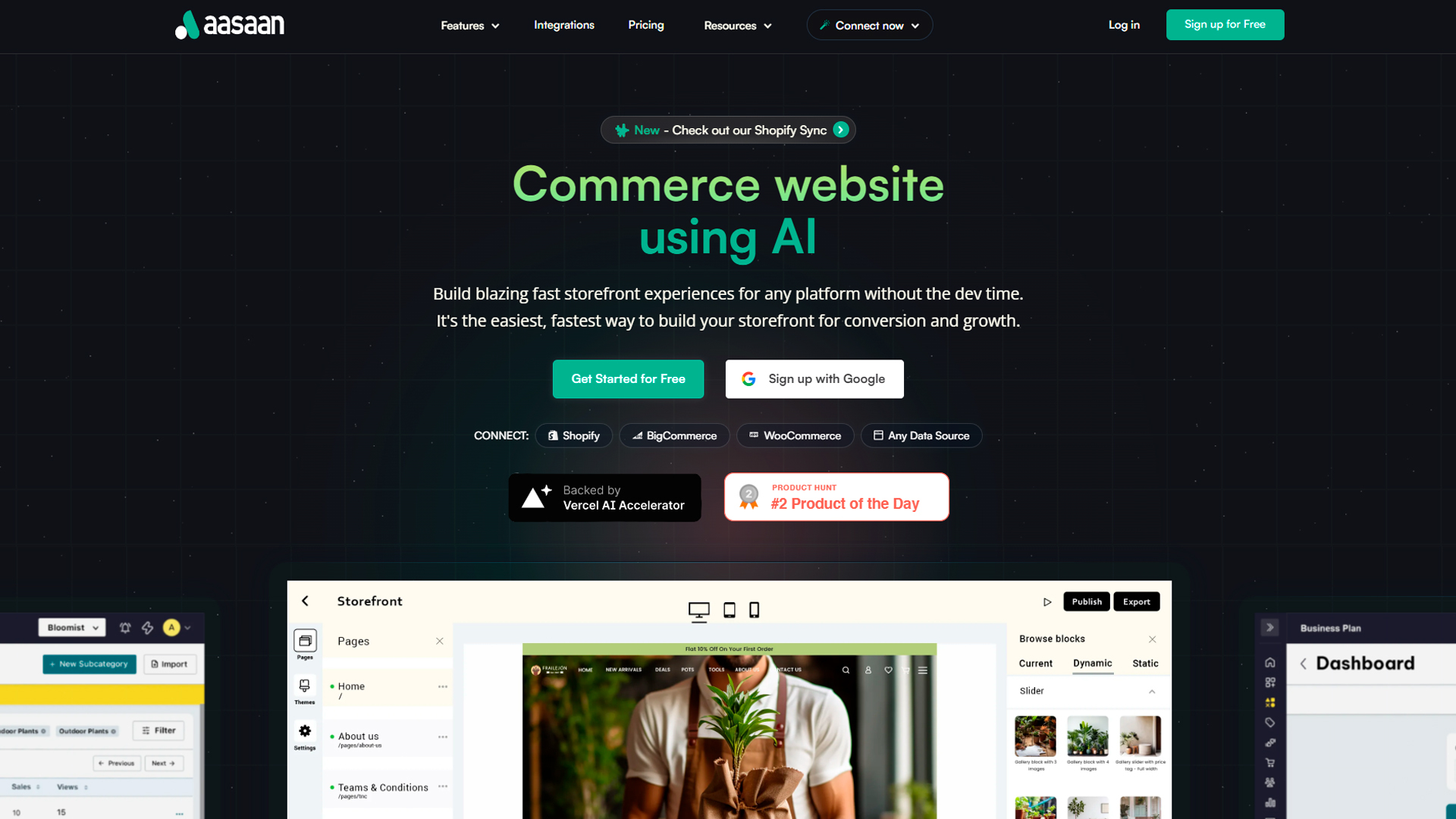
Aasaan is a AI multichannel eCommerce software that makes it easy for businesses to manage their online stores across multiple platforms. With Aasaan, merchants can sell on marketplaces, social media platforms, and their own eCommerce websites. Some of the key features of Aasaan include:
- User-friendly interface
- SEO optimization
- Inventory management
- Order management
- Integration with major marketplaces
- Shipping and order tracking
- Payment gateway integration
The Standard plan costs $24 per month when billed monthly or $18 when billed annually. The Premium plan costs $75 per month when billed monthly or $50 when billed annually. The Business plan is priced at $199 per month when billed monthly or $165 per month when billed annually. The Enterprise plan contact sales team.
2. Shopify:

Shopify is one of the most popular multichannel eCommerce software options available in the market. It is a cloud-based platform that provides businesses with everything they need to start, run, and grow an online store.
Shopify enables merchants to sell on multiple channels, including social media platforms, marketplaces, and their own eCommerce websites. Some of the key features of Shopify include:
- Easy to use interface
- A wide range of templates and themes to choose from
- Built-in payment processing
- Shipping and tax calculation
- Inventory management
- SEO optimization
- Analytics and reporting
Shopify offers various pricing plans, starting from $29 per month for the basic plan, which includes all the essential features. The advanced plans offer additional features such as gift cards, advanced report builder, and third-party calculated shipping rates.
3. BigCommerce:
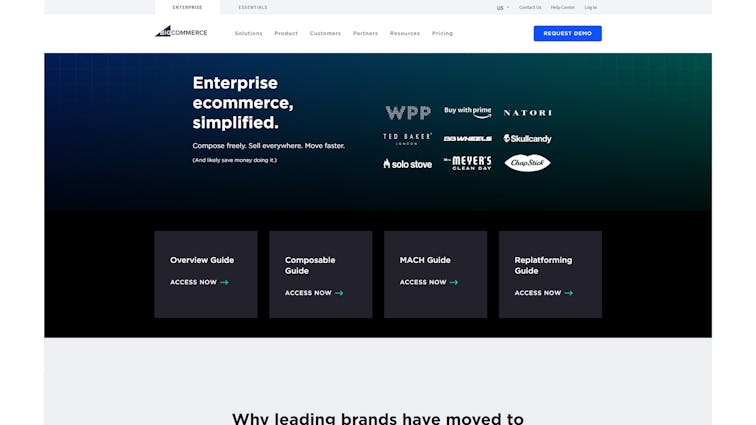
BigCommerce is another popular multichannel eCommerce software option. It is a cloud-based platform that provides businesses with everything they need to start, run, and grow an online store.
BigCommerce enables merchants to sell on multiple channels, including social media platforms, marketplaces, and their own eCommerce websites. Some of the key features of BigCommerce include:
- A wide range of templates and themes to choose from
- Built-in payment processing
- Shipping and tax calculation
- Inventory management
- SEO optimization
- Analytics and reporting
BigCommerce offers various pricing plans, starting from $29.95 per month for the standard plan, which includes all the essential features. The advanced plans offer additional features such as abandoned cart saver, customer groups and segmentation, and product filtering.
4. WooCommerce:
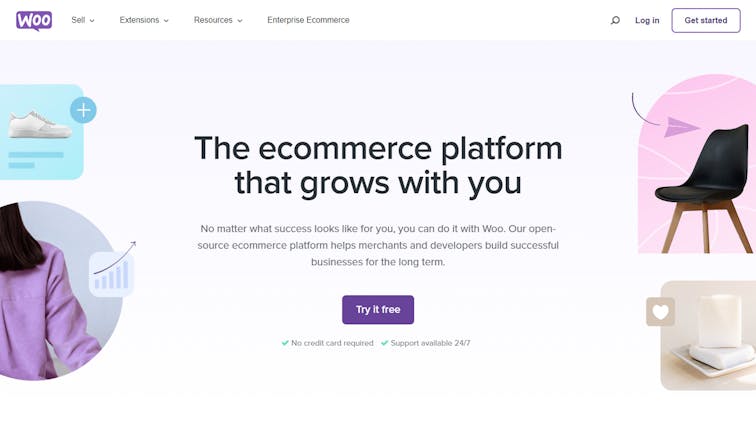
WooCommerce is an open-source eCommerce platform that runs on WordPress. It is a powerful and flexible platform that enables businesses to sell their products on multiple channels. WooCommerce offers various features, including:
- A wide range of themes and plugins to choose from
- Built-in payment processing
- Shipping and tax calculation
- Inventory management
- SEO optimization
- Analytics and reporting
WooCommerce is free to download and use, but you will need to pay for hosting and other associated costs. The platform offers various extensions that you can purchase to add additional features and functionality.
5. Magento:
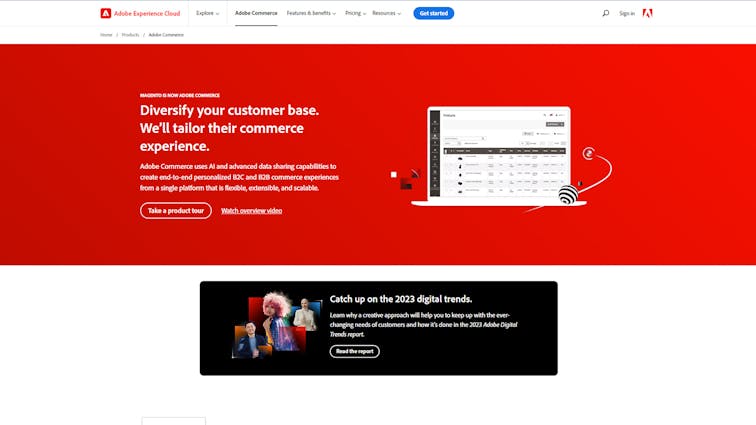
Magento is an open-source eCommerce platform that provides businesses with a range of features and functionalities to sell their products on multiple channels. Magento offers various features, including:
- A wide range of themes and plugins to choose from
- Built-in payment processing
- Shipping and tax calculation
- Inventory management
- SEO optimization
- Analytics and reporting
Magento Open Source is a free version that requires web hosting, extensions, and developers, which can cost from $10,000 to $60,000.
Magento Commerce and Magento Commerce Cloud are paid versions that include advanced features, security, and support, which can cost from $22,000 to $50,000 depending on the annual sales revenue and the hosting service.
Case Studies and Examples of Successful Multichannel Ecommerce Solutions
1. Companies that have successfully implemented a multichannel ecommerce solution:
retailers such as Walmart, Target, and Best Buy have embraced multichannel strategies, blending online and offline sales to provide an omnichannel experience for their customers.
2. Strategies and tactics they used to achieve success:
These businesses have effectively leveraged technology, customer data, and targeted marketing to create a seamless and engaging shopping experience.
Additionally, they have prioritized inventory management, order fulfillment, and customer support to ensure operational excellence.
Examples:
1. Nike:
Nike has successfully implemented a multichannel ecommerce solution by offering their products on their website, mobile app, and physical stores.

2. Sephora:

Sephora has created a seamless and personalized shopping experience by offering their products on their website, mobile app, and social media platforms.
3. Etsy:
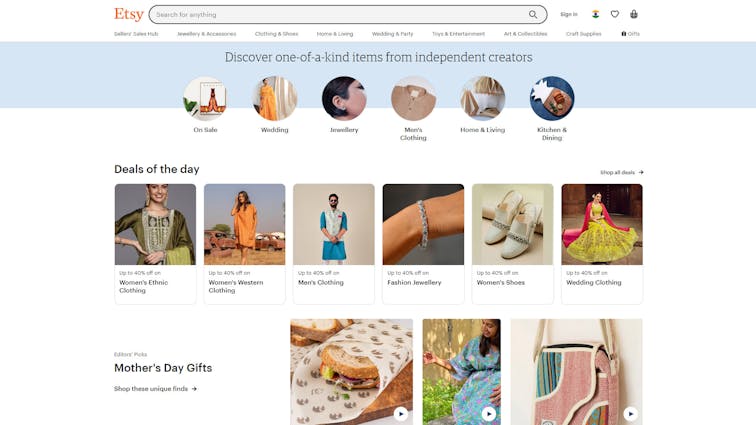
Etsy has used a multichannel ecommerce solution to expand their reach by offering their products on their website, mobile app, and other online marketplaces.
Conclusion:
In conclusion, the adoption of a multichannel ecommerce solution offers businesses an unparalleled opportunity to expand their reach, enhance customer experience, and drive sales.
By selecting the right solution and implementing best practices, organizations can navigate the challenges associated with multichannel retailing and capitalize on the myriad benefits it offers.
As the digital landscape continues to evolve, the importance of embracing multichannel ecommerce strategies will only become more crucial for businesses seeking long-term success and growth.



